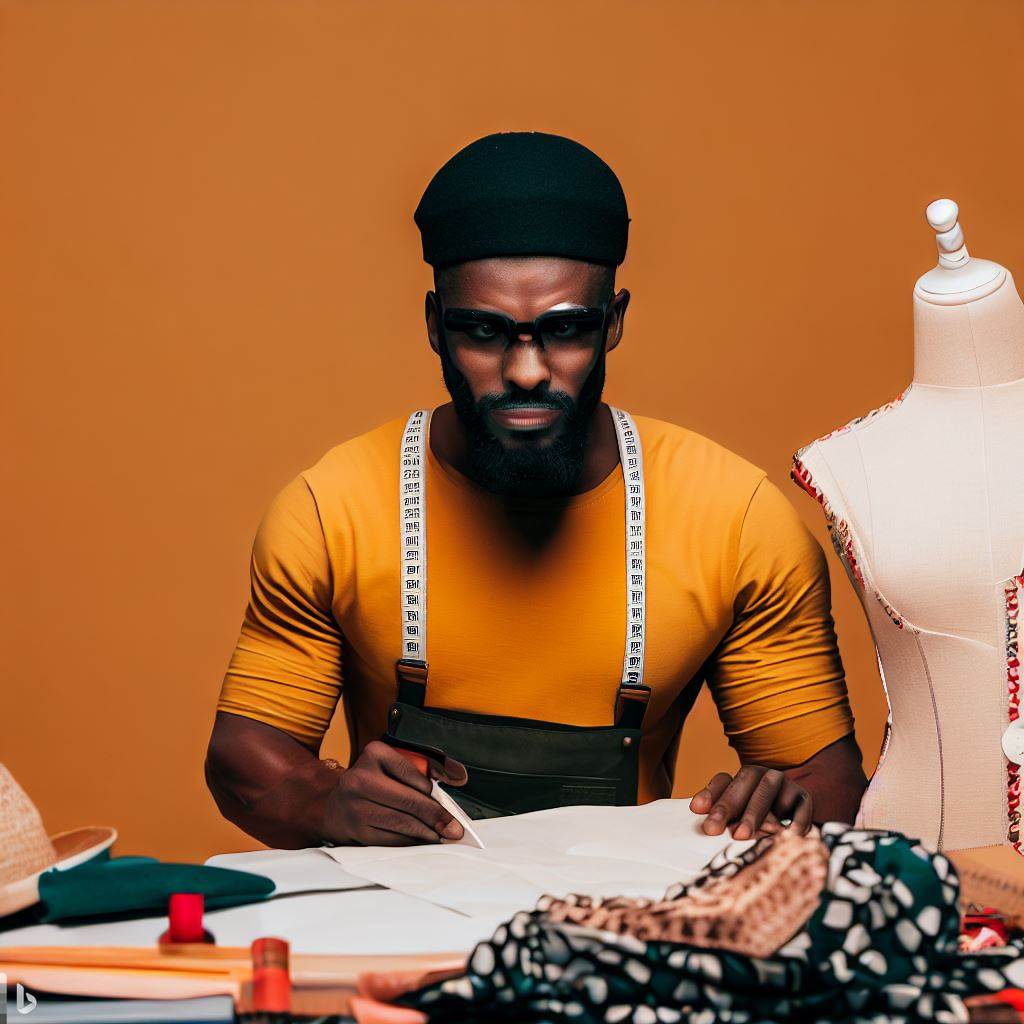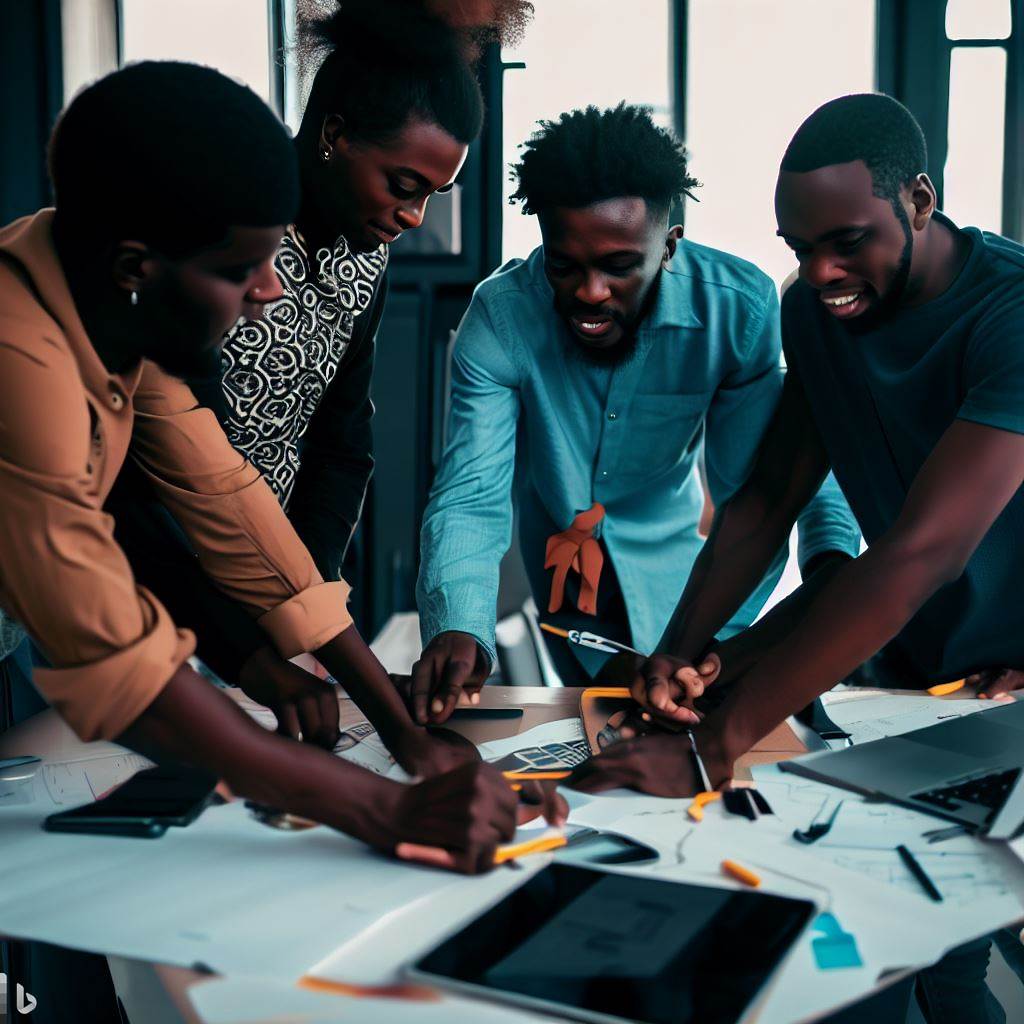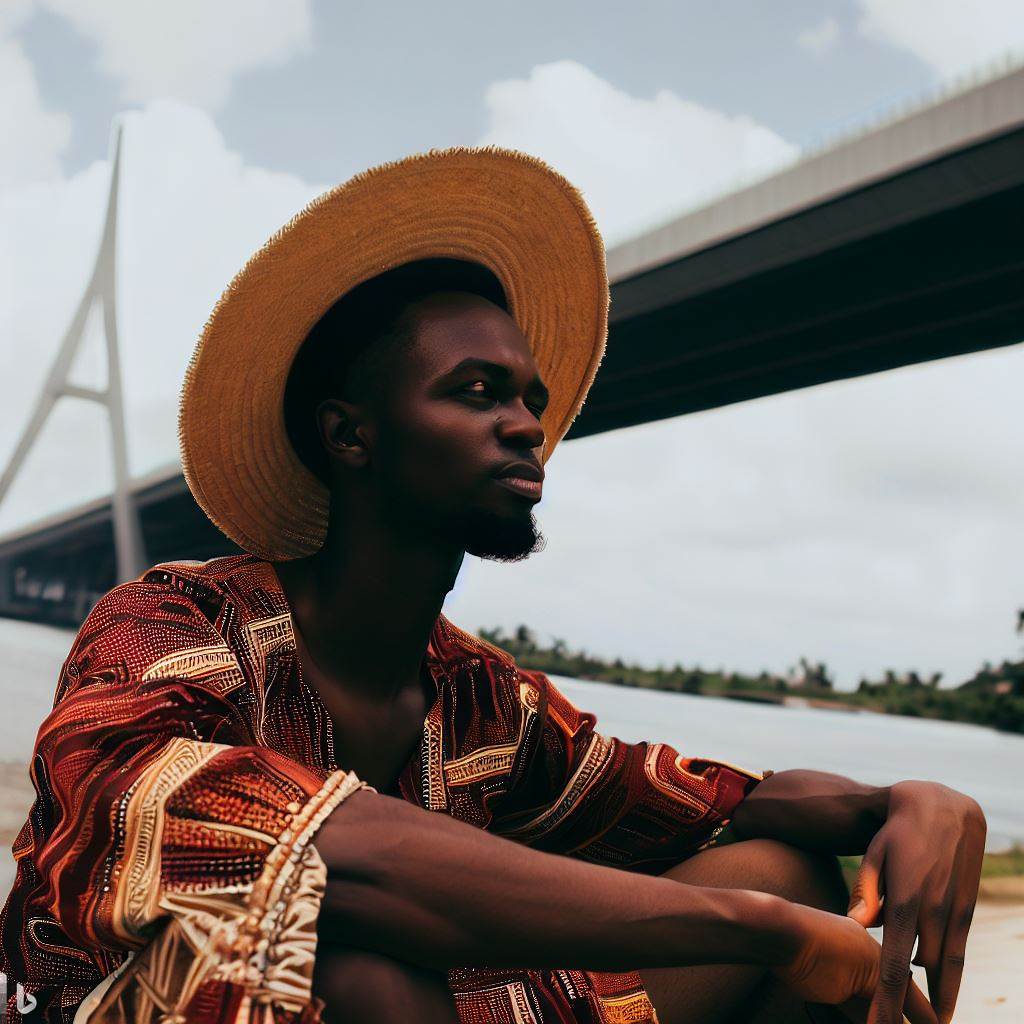Introduction
The entertainment industry in Nigeria is a vibrant and thriving sector, often referred to as Nollywood, which produces a significant number of movies and TV shows each year.
With a rich cultural heritage and diverse storytelling, Nigerian movies have gained international recognition and a large fanbase.
Costume design is a crucial aspect of filmmaking and involves creating and selecting costumes that reflect the characters and the story.
It requires a deep understanding of the script, characters’ personalities, and the overall theme of the production.
Breaking barriers and pursuing a career in costume design in Nigeria is significant because it allows individuals to showcase their creativity, contribute to the growth of the entertainment industry, and promote cultural representation.
Costume designers have the power to transform actors into their characters, heightening the audience’s emotional connection and enriching the storytelling experience.
By pushing boundaries and challenging traditional norms, costume designers can create unique and memorable characters that resonate with viewers.
They have the opportunity to promote diversity and inclusion by incorporating different cultural influences, fashion trends, and styles.
Through their work, costume designers can elevate Nigerian cinema and highlight its distinctiveness.
Therefore, by venturing into a career in costume design in Nigeria, individuals can not only contribute to the thriving entertainment industry but also play a crucial role in shaping cultural representation and breaking barriers in storytelling.
Exploring the Challenges
Limited recognition and appreciation for costume design in Nigeria
Nigeria’s costume design industry is faced with challenges such as limited recognition and appreciation.
While the country is rich in cultural heritage and diverse traditions, the art of costume design is often overlooked and undervalued.
This lack of recognition can be disheartening for aspiring costume designers who invest their time and creativity into their craft.
Cultural biases and stereotypes towards costume designers
Another challenge faced by costume designers in Nigeria is the presence of cultural biases and stereotypes.
In a society where certain professions are deemed more prestigious than others, costume designing is often considered less significant.
This mindset creates barriers that prevent talented individuals from pursuing their passion and limits their opportunities for growth and success.
Lack of formal education and training opportunities
The absence of formal education and training opportunities is a major hurdle for costume designers in Nigeria.
While there are talented individuals with a natural flair for design, they often lack the technical skills and knowledge required to excel in the industry.
Without access to quality education and training programs, aspiring costume designers are unable to fully develop their craft and compete on a global scale.
Limited financial resources and investment in the industry
Financial constraints pose a significant challenge for costume designers in Nigeria.
Establishing a successful career in costume design requires significant investment in materials, equipment, and marketing.
However, due to the limited financial resources available, many aspiring designers struggle to start their own businesses or showcase their work on a larger platform.
Without adequate funding and investment in the industry, it becomes difficult for costume designers to break barriers and gain recognition.
Gender-based obstacles faced by aspiring female costume designers
Female costume designers in Nigeria face additional obstacles due to gender biases prevalent in society.
They often encounter stereotypes that limit their opportunities for advancement and undermine their abilities.
Traditional gender roles and societal expectations may discourage female designers from pursuing their dreams, leading to a lack of representation and diversity within the industry.
Overcoming these gender-based obstacles is crucial for fostering inclusivity and promoting the growth of costume design as a profession in Nigeria.
Basically, the journey of a costume designer in Nigeria is not without its challenges. Limited recognition, cultural biases, lack of formal education, financial constraints, and gender-based obstacles all contribute to the barriers faced by aspiring designers.
However, by addressing these challenges collectively, the costume design industry in Nigeria can flourish and unlock the potential of talented individuals, ensuring the recognition and appreciation they deserve.
It is essential to create awareness, provide education and training opportunities, encourage investment, and challenge stereotypes to break barriers and pave the way for a thriving costume design community in Nigeria.
Read: Salary Trends for Business Analysts in Nigeria 2023
Overcoming the Barriers
Gaining exposure through local theater groups and community events
To break barriers and become a successful costume designer in Nigeria, gaining exposure through local theater groups and community events is crucial.
This allows aspiring designers to showcase their talent and skills to a wider audience.
By participating in local theater productions and community events, costume designers can gain invaluable experience and build a portfolio of their work.
This exposure helps them attract the attention of industry professionals and potential clients.
Collaborating with emerging filmmakers and independent productions
Another effective way to overcome barriers and establish oneself as a costume designer in Nigeria is by collaborating with emerging filmmakers and independent productions.
Working with these filmmakers provides designers with opportunities to showcase their creativity and bring unique visions to life.
Additionally, collaborating on independent productions allows costume designers to work closely with directors and producers, gaining valuable industry connections and enhancing their reputation.
Leveraging digital platforms and social media for self-promotion
In today’s digital world, leveraging digital platforms and social media is essential for self-promotion as a costume designer in Nigeria.
By creating an online presence through platforms such as Instagram, Facebook, and personal websites, costume designers can showcase their portfolio, share behind-the-scenes insights, and attract potential clients.
Engaging with followers, sharing design processes, and staying active on social media help build a strong and recognizable brand.
Pursuing international opportunities and visibility
To overcome barriers and gain recognition as a costume designer in Nigeria, it is important to pursue international opportunities and visibility.
Participating in international costume design competitions, showcasing work at international fashion and film festivals, and collaborating with international designers allow Nigerian costume designers to broaden their horizons and gain exposure on a global scale.
Through international collaborations and visibility, costume designers can bring their unique Nigerian perspective to the global stage and break barriers in the industry.
Forming collaborations and networks with experienced costume designers
Lastly, forming collaborations and networks with experienced costume designers is essential for breaking barriers and advancing in the field.
By connecting with established designers, aspiring costume designers in Nigeria can learn from their experiences, gain valuable insights, and potentially collaborate on projects.
Attending industry events, joining professional organizations, and seeking mentorship opportunities are effective ways to form connections with experienced costume designers and expand one’s professional network.
Ultimately, breaking barriers and becoming a costume designer in Nigeria requires a multi-faceted approach.
Gaining exposure through local theater groups and community events, collaborating with emerging filmmakers and independent productions, leveraging digital platforms and social media, pursuing international opportunities and visibility, and forming collaborations and networks with experienced costume designers are all crucial steps in the journey to success.
By actively engaging in these strategies, aspiring costume designers can overcome obstacles and establish themselves in the vibrant Nigerian costume design industry.
Read: Challenges and Solutions for Budget Analysts in Nigeria

Gain More Insights: Breaking into Nigeria’s Graphic Design Scene: A Success Guide
Navigating the Industry Landscape
Embracing the fusion of traditional and contemporary Nigerian fashion
- Combining timeless Nigerian aesthetics with modern fashion trends.
- Exploring unique design elements that celebrate both cultural heritage and current style.
- Pioneering innovative techniques to create a distinct and memorable fashion fusion.
- Collaborating with local artisans and craftsmen to infuse traditional techniques into contemporary designs.
- Presenting the world with a fresh and vibrant Nigerian fashion identity.
Incorporating cultural heritage and authenticity in costume designs
- Researching and understanding the historical significance of different Nigerian tribes.
- Using traditional fabrics, patterns, and adornments to bring authenticity to costume designs.
- Ensuring accurate representation of culture without resorting to stereotypes.
- Collaborating with cultural experts to ensure respectful and accurate portrayal of traditions.
- Infusing costumes with rich storytelling elements rooted in Nigerian heritage.
Adapting to changing trends and preferences in the Nigerian film industry
- Staying updated on the latest fashion and film industry trends.
- Flexibly adapting designs to suit evolving audience preferences.
- Experimenting with new styles and techniques to stay relevant in a competitive landscape.
- Striking a balance between traditional elements and contemporary demands.
- Pushing boundaries to challenge conventional norms and introduce cutting-edge designs.
Balancing creativity with practicality and budget constraints
- Artfully designing costumes while considering the practical needs of actors.
- Working within budget limitations without compromising the quality of costume designs.
- Collaborating closely with production teams to understand cost constraints and fulfillment expectations.
- Finding innovative solutions to create visually striking costumes on a limited budget.
- Maximizing resources and materials to achieve the desired creative vision.
Building relationships with production teams and understanding their vision
- Establishing open lines of communication with directors, producers, and other key stakeholders.
- Listening carefully to production teams to understand their overall vision and specific requirements.
- Collaborating closely to align costume designs with the intended visual narrative.
- Offering creative suggestions and insights while respecting the director’s vision and artistic choices.
- Building trust and long-lasting relationships to foster successful collaborations in the future.
Read: Role of Database Administrators in Nigeria’s Fintech Revolution
Success Stories and Inspirations
Highlighting successful costume designers in Nigeria
- Ejiro Amos Tafiri rose to prominence with her intricate designs, blending traditional Nigerian elements with modern aesthetics.
- Yolanda Okereke, known for her work in Nollywood films, has gained international recognition for her unique and bold creations.
- Adebayo Jones, a veteran in the industry, has dressed top celebrities and showcased his designs at prestigious fashion shows.
Discussing their journeys, challenges, and triumphs
- Ejiro Amos Tafiri’s journey began with humble beginnings, facing financial constraints and limited resources.
- Yolanda Okereke initially struggled to break into the industry due to the dominance of established designers.
- Adebayo Jones encountered cultural barriers but ultimately persevered, becoming a trailblazer for future costume designers.
Sharing anecdotes and personal experiences from costume designers
- Ejiro Amos Tafiri recalls how she used to sew costumes for local theater productions before gaining recognition.
- Yolanda Okereke remembers being inspired by her mother, who was a talented dressmaker, and how it influenced her career choice.
- Adebayo Jones shares his experiences of attending international fashion shows and collaborating with renowned designers.
Discussing the impact of successful costume designers on the industry
- The success of costume designers like Ejiro Amos Tafiri, Yolanda Okereke, and Adebayo Jones has inspired aspiring designers.
- Their unique designs and creative approaches have shaped the Nigerian fashion industry’s reputation on a global scale.
- Successful costume designers have created job opportunities and contributed to the growth of the textile and fashion sectors in Nigeria.
In short, the success stories of costume designers in Nigeria serve as inspirations for aspiring designers. They have overcome challenges, shared personal experiences, and left a significant impact on the industry.
These designers’ journeys reflect the resilience, creativity, and talent within the Nigerian fashion scene, driving its continuous growth and recognition.
Read: Challenges and Solutions for Budget Analysts in Nigeria
Conclusion
Recapitulation of the challenges faced by costume designers in Nigeria. Importance of breaking barriers and pursuing a career in costume design.
Encouragement for aspiring costume designers to follow their dreams.
Embarking on a costume design career in Nigeria involves creativity, resilience, and determination.
- Creative Fulfillment: Costume designers contribute to visual storytelling, enhancing productions’ authenticity and impact.
- Industry Evolution: Nigeria’s entertainment industry growth creates opportunities and demand for skilled costume designers.
- Cultural Heritage: Designers play a vital role in preserving and promoting Nigeria’s diverse cultural expressions.
- Skill Development: Continuous learning and adapting to industry trends are essential for career success.
- Breaking Barriers: Overcoming challenges fosters personal growth and contributes to the industry’s advancement.
Becoming a costume designer in Nigeria is a journey of breaking barriers, embracing creativity, and shaping cultural narratives.
Final thoughts on the future of costume design in Nigeria and its potential growth.




